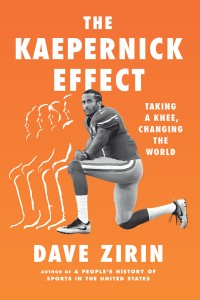We held the International Society of Sport Psychology Welcome Meeting. The new ISSP MC introduced themselves and discussed the first issues involving the organization and some goals to be achieved in the next four years. #sportpsychology
Monthly Archive for November, 2021
Page 3 of 3
10 thoughts of José Mourinho
- Soccer is a religion
- Understand your audience
- Players must show aggressiveness and willingness to sacrifice
- Wild desire for victory
- The field must be a fortress
- When you are not the best team you must have the ambition to win
- I don’t train players, I train teams
- Players must understand the game
- Champions can be taught how to play in a team
- You don’t win trophies with good guys
To lead a team, the coaches’ leadership must be supported by some psychological characteristics
- Analytical and multitasking skills - Coaches work in highly technical activities, must develop excellent problem solving skills and be able to tackle multiple tasks at the same time.
- Emotional regulation - Ability to stay focused on a task in presence of many potential distractions and disruptive factors. Coaches need to increasingly enhance their ability to control emotions of frustration and anger.
- Time management - Good time management requires the use of those analytical skills necessary to prioritize among tasks and identify responsibilities to be assigned. In addition, coaches must be able to identify their own personal limitations and those of their athletes.
- Confidence and Competitiveness - Coaches must refer to themselves for encouragement, support, motivation and reinforcement. There will be bad and frustrating days. Individuals must be confident and motivated enough to deal with frustration and lack of support.
- Quick Decision Making - Success depends on the individual’s ability to deal with situations of tension, anger and frustration, and to respond very quickly and appropriately. Many times, in fact, it is necessary to respond quickly. Anxious individuals become distracted by paying attention to stimuli that are not relevant to that task and by distracting thoughts/emotions. When under pressure they have difficulty listening, solving problems, or making effective decisions.
This man is the only person to have run the first New York City Marathon in 1970 and run the 50th next Sunday. HIs name is Larry Trachtenberg.


From time to time review these points and reflect on what is your attitude towards them.
- Strive to acquire and implement new tactics and strategies into your coaching repertoire.
- Never stop assessing yourself and making adjustments when they are needed.
- Maturing as a coach takes time. Be patient and honest with yourself.
- Just because something worked for three years does not mean it will be today. Constantly evaluate and adjust your approaches and strategies.
- Hard work is important and must become and accepted way of life.
- If you want to excel, be prepared to devote more hours than you originally thought necessary.
- Find a coaching style that suits your personality and brings the best out in you.
- Help your athletes identify and achieve they own goals.
- Respect is not given, but shared. If you respect your athletes, they will respect you in return.
- Keep your relationship with athletes on a professional level.
- Demonstrate ease for your athletes in subtle way.
- Create an environment that is educational, supportive, fun, and challenging for your athletes.
The Kaepernick Effect
Riveting and inspiring first-person stories of how “taking a knee” triggered an awakening in sports, f from the celebrated sportswriter
“The Kaepernick Effect reveals that Colin Kaepernick’s story is bigger than one athlete. With profiles of courage that leap off the page, Zirin uncovers a whole national movement of citizen-athletes fighting for racial justice.” —Ibram X. Kendi, National Book Award–winning author of Stamped from the Beginning and How to Be an Antiracist
In 2016, amid an epidemic of police shootings of African Americans, the celebrated NFL quarterback Colin Kaepernick began a series of quiet protests on the field, refusing to stand during the U.S. national anthem. By “taking a knee,” Kaepernick bravely joined a long tradition of American athletes making powerful political statements. This time, however, Kaepernick’s simple act spread like wildfire throughout American society, becoming the preeminent symbol of resistance to America’s persistent racial inequality.
Critically acclaimed sports journalist and author of A People’s History of Sports in the United States, Dave Zirin chronicles “the Kaepernick effect” for the first time, through interviews with a broad cross-section of professional athletes across many different sports, college stars and high-powered athletic directors, and high school athletes and coaches. In each case, he uncovers the fascinating explanations and motivations behind a mass political movement in sports, through deeply personal and inspiring accounts of risk-taking, activism, and courage both on and off the field.
A book about the politics of sport, and the impact of sports on politics, The Kaepernick Effect is for anyone seeking to understand an essential dimension of the new movement for racial justice in America
SYSTEMATIC REVIEW Olympic Sports Science—Bibliometric Analysis of All Summer and Winter Olympic Sports Research
G.P. Millet, F. Brocherie e J. Burtscher. Front. Sports Act. Living, 20 October 2021
We took this rare opportunity to quantify and analyze the main bibliometric parameters (i.e., the number of articles and citations) across all Olympic sports to weigh and compare their importance and to assess the structure of the “sport sciences” field. The present review aims to perform a bibliometric analysis of Olympic sports research. We quantified the following topics: (1) the most investigated sports; (2) the main journals in which the studies are published; (3) the main factors explaining sport-specific scientific attractiveness; (4) the influence of being in the Olympic programme, economic weight, and local influences on research output; and (5) which research topic is the most investigated across sports.
This comprehensive review provides interesting outcomes that are summarized briefly here and discussed afterwards:
- There is a large difference in scientific output among sports, with nine sports representing 75% of the citations and 11 having a total of fewer than 50 associated publications.
- Football (soccer) is by far the leading Olympic sport in terms of bibliometrics.
- Team sports, particularly American professional sports (i.e., baseball, basketball, ice hockey), generate high scientific interest.
- Overall, winter sports generate minor scientific output.
- Most articles have been published in a limited number of journals.
- Whether the inclusion of a sport in the Olympic programme translates into an increase in scientific publications remains unclear.
- We also report some influence of local/cultural factors and/or of editorial board composition on the importance of a given sport in a given journal.
- Finally, the distribution of articles among six main research topics (i.e., physiology, performance, training and testing, injuries and medicine, biomechanics, and psychology) highlights the (scientific) performance determinants of each sport.
Surprisingly, in every sport, the number of publications on psychology-related topics is quite low. Only for curling, shooting, and modern pentathlon are >10% of the sport-specific publications related to psychology, followed by table tennis. All these sports require extreme accuracy and self-control. The possibility that this low representation of psychological articles relates to the applied methodology (e.g., the database searched was PubMed) cannot be excluded, but most of the leading sport psychology journals (e.g., Journal of Sport & Exercise Psychology) were included in our search. These findings thus could also indicate that sport psychology is less represented than other scientific areas (physiology, medicine) in the literature. The potential underrepresentation of sport psychology should encourage sport psychologists or mental coaches to publish more of their research since there is no doubt that mental skills are an important aspect of performance in all sports.






